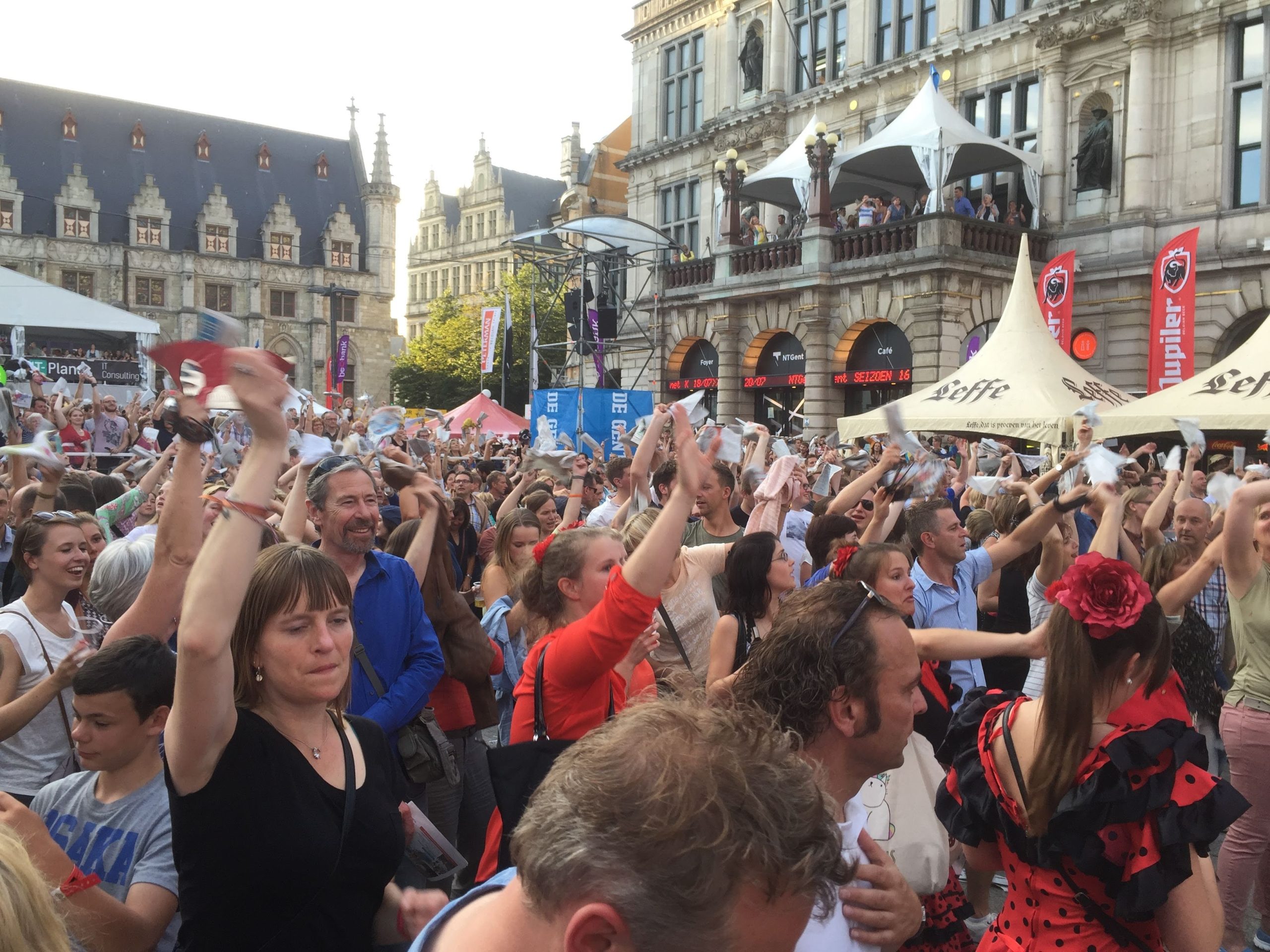the catering and events sector is over-demanded and under-staffed.
On Friday 6 May 2022, the City of Ghent has organized an online auction for 30 food stalls in the Gentse Feesten zone. 34 candidate buyers registered. 27 positions became successful auctioned, good for a total proceeds of 176.200 euros.
The two sustainable clusters were also allocated. no fewer than 27 of the 30 stands were successfully auctioned, good for a total proceeds of 176.200 euros. This is in line with the expected income. The two low-waste clusters, Belfort-Beverhoutplein-Vlasmarkt-Sint-Jacobs and Kouter, were sold and will be pioneers within the Ghent Festivities with reusable tableware and a take-back system.
After two difficult corona years, the catering and events sector is over-questioned and understaffed. In order to give as many entrepreneurs as possible the opportunity to start, each bidder could also acquire a maximum of one location or cluster. The proceeds of the auction contribute to the organization and quality of the Gentse Feesten. The auction was supervised by a bailiff.
We have been ambitious, with a larger vegetarian offer and with reusable tableware. I am proud that this has paid off. The Gentse Feesten will be a pioneer in the field of sustainability in Europe. And now: party!"
Bram Van Braeckevelt, Alderman of Festivities

All stands were offered for one year, the Gentse Feesten 2022 edition. In this way, the design and organization of the clusters with reusable tableware and take-back system can be properly evaluated. The city council lowered the set price of the clusters as a compensation for the extra efforts to set up exchange points for the reusable catering material.
Ghent Festivities
Ghent has been a real party city since time immemorial. As the capital of the County of Flanders and seat of the diocese, Ghent had a rich tradition of official celebrations such as royal investitures and ecclesiastical celebrations such as processions or episcopal celebrations.
In the mid-19th century, Ghent was also a thriving port and industrial city. The corresponding ranks of merchants and entrepreneurs from the upper middle class were united in various associations. They also had their own parties. One of those associations was the Union, a “sociéte bourgeoise” with its seat on the Kouter.
They launched the idea of organizing a “general fair” or centrally organized “Municipality Parties”. These had to contribute to the appearance of the city. Conveniently, general festivities could replace the existing parish fair and neighborhood festivities. In the eyes of the Union, these enjoyed too little charisma and drove the workers from the factories towards the cafes.
In their view, there were simply too many fairs and neighborhood parties. On average, from July to October there were 2 community fairs per month and a number of parish parties. This meant that some of the working people were partying somewhere for almost 8 weeks.



